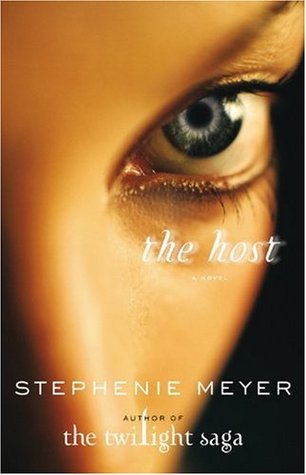**** After all you read with pleasure
This is
certainly a book full of flaws, starting with the claim to be a novel for
adults, as Meyer herself said in the interview given at the end of the volume.
There is
little to say: it is not a book for adults.
The main
characters aren’t teenagers, except one, but they are still in their early
twenties, therefore very young. Their behaviour is in any case more consistent
with that of so-called young adults and not adults.
The very
fact that the main character, an alien in a human body, lingers on telling
their own physical and emotional feelings makes them a metaphor of adolescence.
The plot
has some weaknesses; they are essential to bring the story in the direction
desired by the author, but they are still completely improbable stretching and
the reader realizes it.
Another
major flaw of the plot is the fact that there are only inner conflicts, while
it’s lacking some real action. Simply put, really a little happens in the story
though it is over 600 pages.
The little
that happens tends to settle too easily (one wonders how the souls could invade
the whole planet if they are so easy fooled!) before the next problem occurs.
This last aspect creates pauses in the narrative, in which you may lose some
less motivated readers, who might not feel the need to continue reading.
Despite all
these shortcomings, I decided to give 4 stars to this novel. The reason is
simple: in one way or another I kept reading, turned the pages, read the next
chapter and did it with pleasure. In short, the novel fulfils its purpose: you
read it to the end.
Although
its being overly cheesy makes you immediately decide it’ll be the last you read
by this author.
Although breaking
the action to resume it in the next chapter is only a cheap trick to keep you
going on.
Although
600 pages told in first person by a frightened and confused alien make you
think a good idea for a science fiction novel was wasted.
Although
while reading the above-mentioned interview with Meyer you discover that not
only she does not realise that she wrote a novel for kids, but even that it is
in all respects a science fiction novel: she says that it is formally so only
because there are aliens, showing that she does not have the faintest idea of
the meaning of science fiction and the fact that such a vast genre not only
narrates about aliens and invented technology, but that this creates the
setting for telling stories. In this case the story is about love.
I finally
decided to ignore the decision to add some questions (and what questions!) to
the end of the volume for reading groups and to put a playlist of songs. I
fully understand that when you write you tend to see the scenes through music
that you like, but the author must realise that the experience of reading is
something totally different and is specific to each individual reader. I myself
have tried to associate certain songs to the suggested parts of the book, but I
could not see any similarities, because I can’t obviously see a book the same
way the author does.
I originally
wrote this review in 2011, when I read the book. Years later I went to see the
film by Andrew Niccol. It was indeed difficult to adapt a novel like this into
the language of films, unless you rewrite part of the plot. This is because in
literature everything is fine, but movies, with their costs, claim a story that
works, cinematically speaking. Moreover it is impossible to show 600 pages of
the novel in a two-hour movie, without any cuts.
Well,
unfortunately cuts and adaptations have turned this story into a film with
teenagers (the main actress was only 17 at the time and she showed less) acting
as adults, eliminating the little good that was in the novel and creating a
hasty and not very engaging story.
The Host

No comments:
Post a Comment